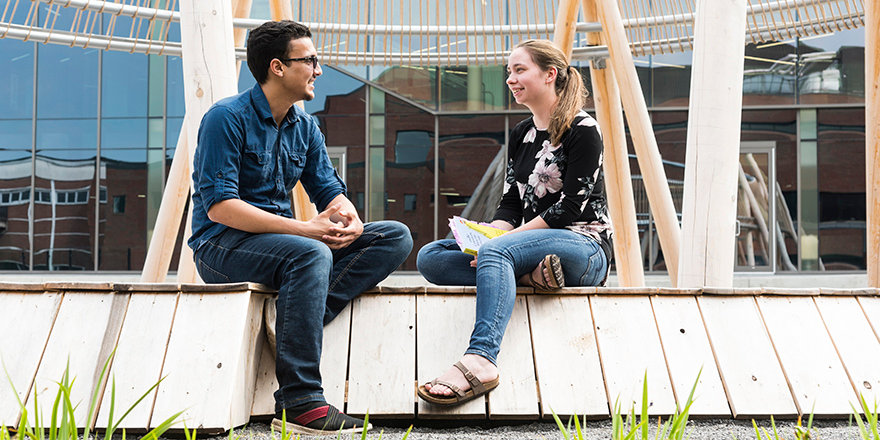4 Mental Health Tips for Students
Advice on improving your mental health while in post-secondary.


You've made it to college. Everything is new and exciting — new friends, new places, new things to learn. That's as it should be.
But, as you've probably realized, there are new stresses and new anxieties. With so much to do, so much to experience, so much to learn, balancing school, your social life, and a job, if you have one, can feel overwhelming.
Here are few tips on finding that balance:
Be realistic
It's fine — and necessary — to have goals, but don't reach beyond your grasp. There's only so much time in the day, and if you try to do too much, you'll likely be stretched too thin and left unable to achieve what you really want. You'll just find yourself frustrated and anxious. Of course, you should challenge yourself — how else would you grow? — but think seriously about your priorities and interests (and make sure they are YOUR interests, and not what others think you “should” do).
Be time-wise
A big pitfall for new students is procrastination. You might think the 168 hours available to you each week provide plenty of time to write an essay, plan a project, study for an exam — and still have fun. And they can be, if you avoid avoidance. Learning to set priorities, keeping to a schedule, doing what needs doing — studying for that exam, writing that essay — before allowing yourself downtime: these are essential to student success (and life success, too).
Be well
Eating, sleeping, exercising, socializing, and even spending time alone — all these activities need to be incorporated into your student life. A balanced diet — that means moderation on the junk food — regular exercise, and a proper amount of sleep will go a long way toward keeping your stress levels down. Ditto when it comes to the social side of your life. Family, friends, classmates, and your professors can provide a support system to keep you from feeling overwhelmed when you feel overworked.
Be a help to yourself
If (when?) you're feeling unbalanced, don't be shy about asking for “outside” help. Friends and family are important, but sometimes you need someone who can be more objective in recognizing a problem. You won't be the first overstressed student counsellors have encountered, and over the years they've accumulated a lot of experience in knowing how to help. Algonquin College provides various support services for students — Health and Wellbeing, Peer Tutoring, and Academic Distress Counselling, for example. Don't hesitate to help yourself to the help you need.
College is likely to be one of the most rewarding times in your life — but it is also one of the most challenging. You can meet that challenge and enjoy the rewards by maintaining a school-life balance that lets you do well academically while also discovering everything life has to offer beyond the classroom.
